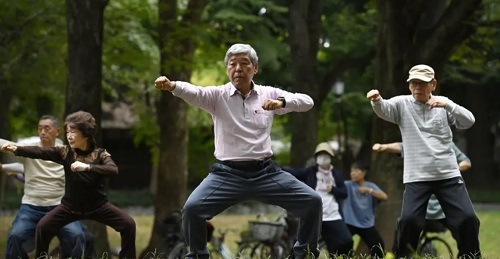- Japan’s centenarian population hit a record 99,763 in September 2025.
- Women make up 88% of that figure, highlighting gender longevity gaps.
- The oldest woman is Shigeko Kagawa (114), and the oldest man is Kiyotaka Mizuno (111).
- Japan credits diet, active lifestyles, and public health campaigns for its world-leading life expectancy.
- Centenarians are honoured on Elderly Day (Sept 15) with gifts from the prime minister.
- First recorded survey in 1963 listed only 153 centenarians, showing remarkable growth.
- Past audits revealed registry errors and cases of families hiding deaths to collect pensions.
Japan has once again broken its own longevity record, with the number of citizens aged 100 and above climbing to 99,763, according to new figures released by the health ministry. This milestone marks the 55th consecutive year of growth in the country’s centenarian population.
Women continue to dominate the statistics, making up nearly 88% of the total. At the top of the list is 114-year-old Shigeko Kagawa from Yamatokoriyama, celebrated as the oldest person in Japan. The oldest man is 111-year-old Kiyotaka Mizuno from Iwata.
The announcement comes ahead of Elderly Day on September 15, a national holiday where new centenarians are honoured with a congratulatory letter and a silver sake cup from the prime minister. This year alone, more than 52,000 people will receive the recognition.
Japan’s shift into an ageing society has been dramatic. When the government began keeping track in 1963, only 153 people were aged 100 or above. That number reached 1,000 by 1981, crossed 10,000 by 1998, and is now approaching the 100,000 mark.
Experts attribute Japan’s world-leading life expectancy to multiple factors: a diet low in red meat and high in fish and vegetables, lower obesity rates, reduced salt intake thanks to decades of public health campaigns, and active lifestyles well into old age. Popular cultural practices like Radio Taiso, a short daily group exercise introduced in 1928, continue to keep older citizens mobile and socially engaged.
However, Japan’s longevity story has not been without controversy. In 2010, a government review uncovered more than 230,000 centenarians unaccounted for in registries, some of whom had been deceased for decades. Authorities blamed inconsistent record-keeping, and in some cases, families allegedly concealed deaths to continue receiving pensions.
Despite such past discrepancies, Japan remains the country most associated with longevity. The health ministry says the latest figures reflect not only improved healthcare but also the resilience and contributions of its elderly citizens.



